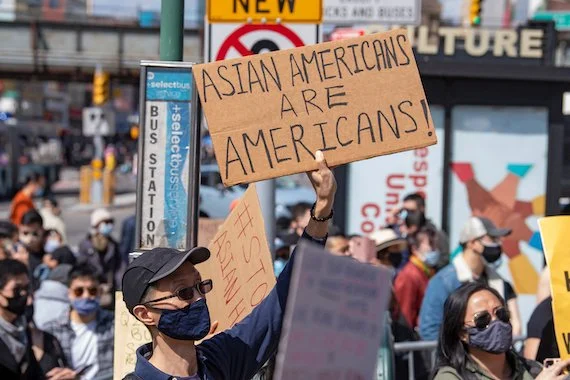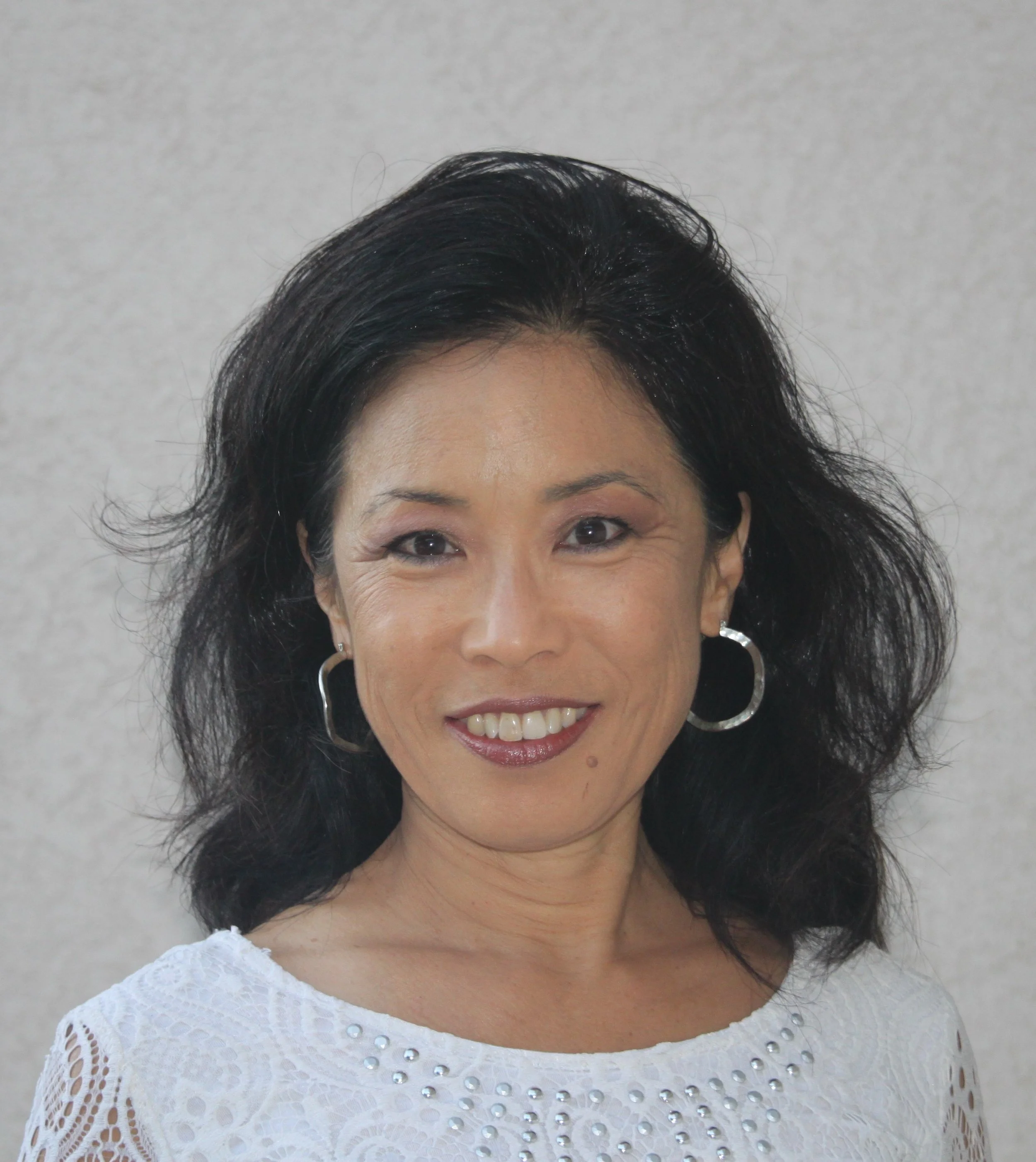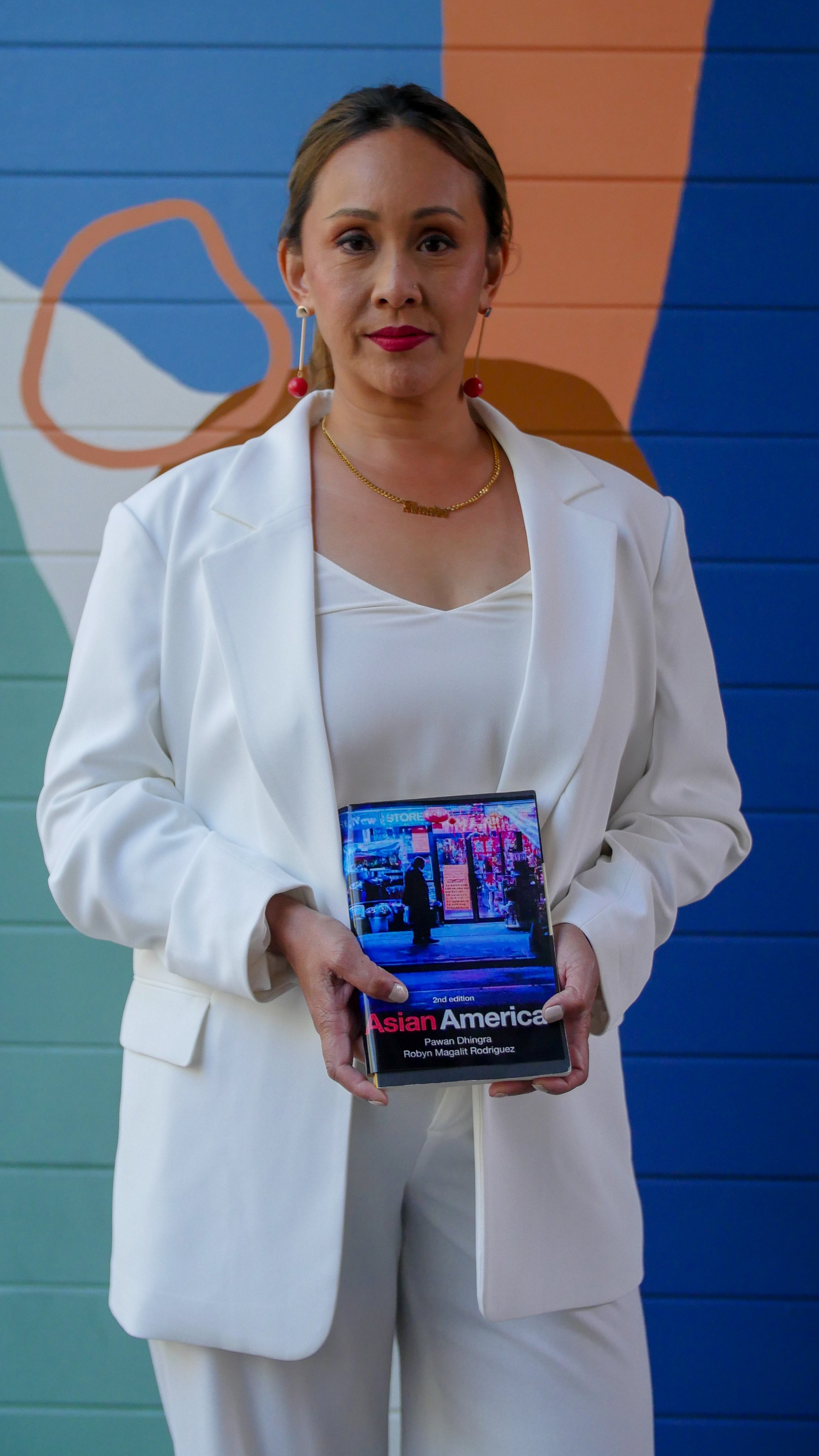Resistance, Defiant Love, and Radical Care Explored in New Course and Book - Contemporary Asian American Activism: Building Movements for Liberation
As anti-Asian hate and discrimination persists in the U.S,
activism in the Asian Pacific Islander American (APIA) community is rising too
Sacramento, CA - December 16, 2021– Scholar-activists Dr. Robyn Magalit Rodriguez and Dr. Diane Fujino uplift the rich and radical history of Asian American activism in their upcoming book, Contemporary Asian American Activism: Building Movements for Liberation, available to purchase January 21, 2022 through the University of Washington Press and Amazon. Featuring contributors across disciplines and pedagogies, Contemporary Asian American Activism: Building Movements for Liberation affirms that Asian Americans have always been at the forefront of social justice movements for generations and guides readers toward emancipatory futures. Dr. Rodriguez will additionally be launching pre-registration for her mini-course on Asian American activism for her on-line School for Liberating Education. The course will draw significantly from the book and her own experiences as a community organizer.
Asians have become this country’s fastest growing racial and ethnic group, making it critical that Asian communities are not lumped into a singular identity that strips them of their social, political, and cultural complexities within and outside the United States:
California’s Asian population grew by 25% in the past decade, becoming the fastest growing ethnic group in the nation’s most populous state.
California now has more than 6 million people of Asian descent — more than the total population of most other states.
Ten years ago, none of California’s 58 counties counted Asians as their largest ethnic group.
Now, two do: Alameda County, which includes the cities of Oakland and Berkeley, and Santa Clara County, home to San Jose — the nation’s 10th most-populous city.
The Asian population in the U.S. has tripled in the last three decades. The number of counties where people of Asian descent represent more than 5 percent of the population has risen to 176 in 2020 from 39 in 1990.
Population of major Asian groups (largest to smallest):
Chinese - 4.1 million
Indian - 4 million
Filipino - 3.9 million
Vietnamese - 1.8 million
Korean - 1.5 million
Japanese - 771,000
Pakistani - 473,000
Hmong - 293,000
Cambodian - 258,000
Thai - 205,000
Laotian - 202,000
Bangladeshi - 178,000
Taiwanese - 172,000
Burmese - 169,000
Nepalese - 160,000
Indonesian - 75,000
*Data from 2020 US Census, NY Times
With the increasing presence of Asians in the United States, it’s undeniable that they are a strong political force. From protests and demonstrations and the creation of platforms like #StopAAPIHate in response to the racist, xenophobic rhetoric used to frame the COVID–19 pandemic to the call for justice in the case of Angelo Quinto, a Filipino American who died in police custody, there is a growing momentum of intersectional activism that builds upon 50+ years of Asian American resilience against oppressive systems.
“My journey toward becoming an activist scholar started in a course taught by Dr. Diane Fujino. This project allowed our relationship to come full circle amid work as colleagues and collaborators. As people who straddle different generations of Asian American activism, we felt it was vital to extend our knowledge to newer generations, especially those who seem to be turning to social media to learn about and engage in issues affecting Asian Americans. We want to introduce them to knowledge from movement elders that can’t be found on a typical internet search. I’m launching a mini-course alongside the book to give people an opportunity to dive even deeper into the material and to facilitate connections to activism.”
Contemporary Asian American Activism: Building Movements for Liberation weaves together scholarly and activist perspectives to amplify the struggles 21st century Asian Americans are speaking out and standing up against. The authors highlight the importance of intergenerational knowledge and racial solidarity in each of their chapters which discuss the following topics:
Prison abolition
Anti-gentrification and housing justice
Global anti–imperialism
Environmental justice
Workers rights
Undocumented immigrants’ struggles
Dr. Rodriguez and Dr. Fujino have created an invaluable resource and political education tool for non profits, grassroots organizations, and activist organizations. The book also features an epilogue by Robyn Rodriguez on her late son, Amado Khaya Canham Rodriguez, who passed away suddenly at the age of 22 while working with indigenous communities in the Philippines during the final stages of book production.
Rodriguez adds, “Amado’s story closing the book is significant. He offers a model of what intergenerational Asian American activism can look like in practice today. Amado was a direct “descendant” of the Asian American Movement not only through me but also through his chosen mentors as he paved his own path as an organizer. He embodied the best lessons of his elders in his activist work. The mini-course I’m launching alongside the book will allow other young people to learn the kinds of lessons Amado did.”
Contributing writers include Asian radical elder Pam Tau Lee whose working-class and San Francisco Chinatown roots led her to a lifelong journey dedicated to Environmental Justice, Javaid Tariq who co–founded NY Taxi Workers Alliance and has organized numerous successful strikes to promote economic and social justice for taxi drivers, and New Breath Foundation President and Founder who was formerly incarcerated Eddy Zhang, who mobilizes resources to support Asian American and Pacific Islanders harmed by violence and the unjust immigration and criminal justice systems.
As Eddy Zhang shares, “This book captures a specific period of Asian American Activism from an academic and direct action lens and it preserves the history of our complex intersectional movements. I hope this book will inspire a new generation of Asian American activism that is rooted in Culture, History and Identity that defines our urgency to fight for racial solidarity and collective liberation. Each contributor can write a book about her/his/their history of activism. I hope this is only the beginning of more opportunities to uplift the different facets of our perspectives.”
Contemporary Asian American Activism: Building Movements for Liberation is currently available for pre-order leading up to the official release date on January 21, 2022. Instructors who assign this book in their courses will have access to curricular materials on the website. For more information, visit www.asianamericanactivism.org.
For readers who are inspired to turn theory into action or who may not be enrolled in a college/university, Dr. Rodriguez will be launching a mini-course that draws on the book through her online School for Liberating Education. Through the mini-course, information on how to connect with activist organizations will also be provided.
Dr. Rodriguez will also be working through the Amado Khaya Foundation to support training programs and political education workshops for non-profit organizations and grassroots groups that work to build cross-racial solidarity that draw from the book along with other resources.
The launch for Dr. Rodriguez’s mini-course on Asian American activism will take place on January 20, 2021 at 5pm PST. Dr. Rodriguez will share a sampling of course content at the event, and will be in conversation with Artnelson Concordia, a founding teacher of the San Francisco Unified School District Ethnic Studies program that was the focus of a 2014 Stanford study that highlighted the academic benefits of the district’s 9th grade Ethnic Studies course. Currently, Artnelson coordinates Santa Barbara Unified School District's Ethnic Studies program. He is also a longtime organizer and activist in the Filipinx Community with deep roots to Los Angeles’ Historic FilipinoTown and strong ties to San Francisco’s Excelsior and SOMA Pilipinas Filipino Cultural Heritage district.
You can RSVP to the virtual launch on eventbrite > https://www.eventbrite.com/e/resistance-defiant-love-and-radical-care-explored-in-new-activism-course-tickets-224348110237
APIA Heritage Month 2022
Plans are already underway for a major event during Asian American History month in May in San Francisco. The event specifically highlights Asian American youth activism discussed in the book. The event is being organized in honor of what would have been Amado Khaya’s 24th birthday and will kick off a major fundraising drive for the Amado Khaya Foundation.
Asian American History Month, Koret Auditorium at SF Public Library
San Francisco, California
Saturday, May 14, 2022, 2:00–5:00 PM
Dr. Rodriguez is also accepting invitations to serve as a keynote, panelist, or workshop for organizations seeking a speaker for APIA Heritage month in May. To learn more, visit: www.papalodown.com/dr-robyn-magalit-rodriguez
# # #
About Dr. Robyn Rodriguez and the School for Liberating Education:
About Dr. Robyn Rodriguez:
Dr. Robyn Magalit Rodriguez is a professor and former (and future) chair of Asian American Studies at the University of California, Davis. She is also the founding faculty director of the Bulosan Center for Filipinx Studies, the first of its kind in the University of California system focused on the Filipinx experience in the United States. She attended the University of California, Santa Barbara, where she majored in sociology and later went on to earn her PhD in Sociology at the University of California, Berkeley.
Professor Rodriguez is an expert on race and international migration. Her first book, Migrants for Export: How the Philippines Brokers Labor to the World (University of Minnesota Press, 2010), won an Honorable Mention for Best Book in Social Science by the Association for Asian
American Studies. Alongside her books Asian America: Sociological and Interdisciplinary Approaches (Polity Press, 2014 & 2021), In Lady Liberty’s Shadow: Race and Immigration in New Jersey (Rutgers University Press, 2017), Filipino American Transnational Activism (Brill Press, 2019), and Asian American Activism (University of Washington Press, forthcoming), she has published over thirty academic and journalistic articles.
Dr. Rodriguez’s background in Asian American studies informs her actions as an activist and community organizer. Asian American studies emerged out of student movements that raised questions about access to institutions of higher learning and the politics of knowledge production. These movements, moreover, demanded education and scholarship that was relevant to communities that have been long left out of the university. Professor Rodriguez is very much inspired by that tradition and it is that tradition that motivated her to launch this new course. For full details on Dr. Rodriguez's publications, teaching, and community work please see her website: www.drrobynrodriguez.com
About the book:
In the struggles for prison abolition, global anti-imperialism, immigrant rights, affordable housing, environmental justice, fair labor, and more, twenty-first-century Asian American activists are speaking out and standing up to systems of oppression. Creating emancipatory futures requires collective action and reciprocal relationships that are nurtured over time and forged through cross-racial solidarity and intergenerational connections, leading to a range of on-the-ground experiences.
Bringing together grassroots organizers and scholar-activists, Contemporary Asian American Activism presents lived experiences of the fight for transformative justice and offers lessons to ensure the longevity and sustainability of organizing. In the face of imperialism, white supremacy, racial capitalism, heteropatriarchy, ableism, and more, the contributors celebrate victories and assess failures, reflect on the trials of activist life, critically examine long-term movement building, and inspire continued mobilization for coming generations.
To learn more about the book Contemporary Asian American Activism, visit the website: www.asianamericanactivism.org
“Continues the social justice legacy of ethnic studies and Asian American studies.” -- Judy Tzu-Chun Wu, author of Radicals on the Road: Internationalism, Orientalism, and Feminism during the Vietnam Era
“Offers validation, insight, and new research and discussion questions for Asian American scholar-activists.” -- Karin Aguilar-San Juan, editor of The State of Asian America: Activism and Resistance in the 1990s







